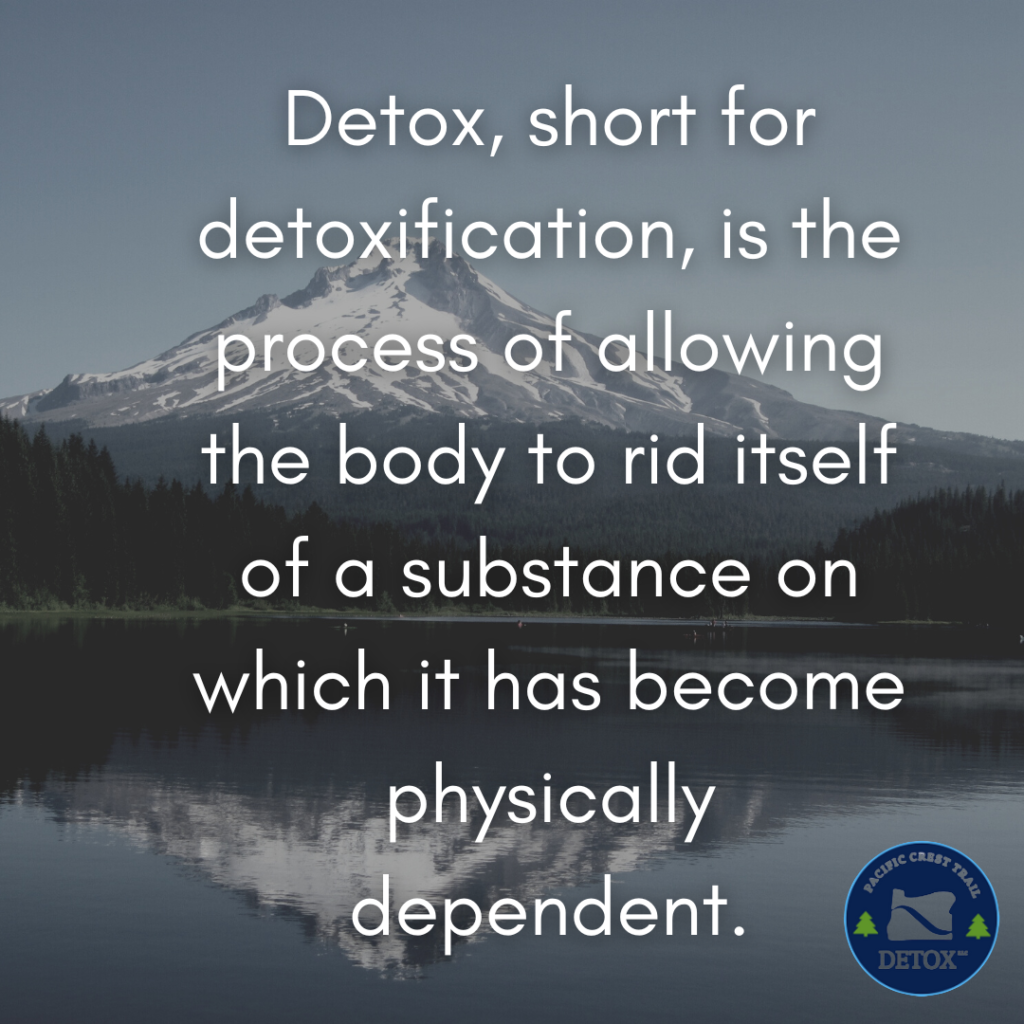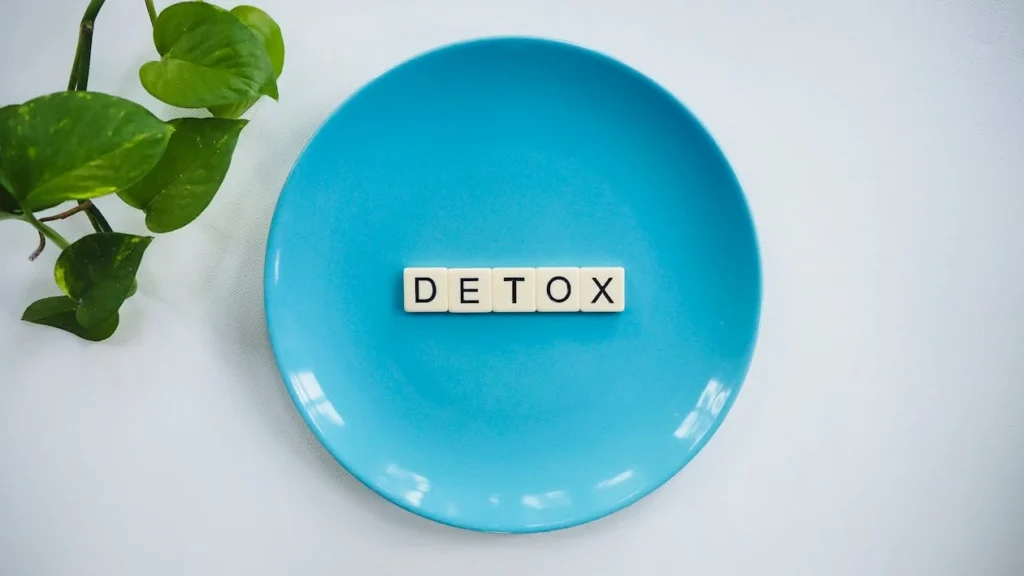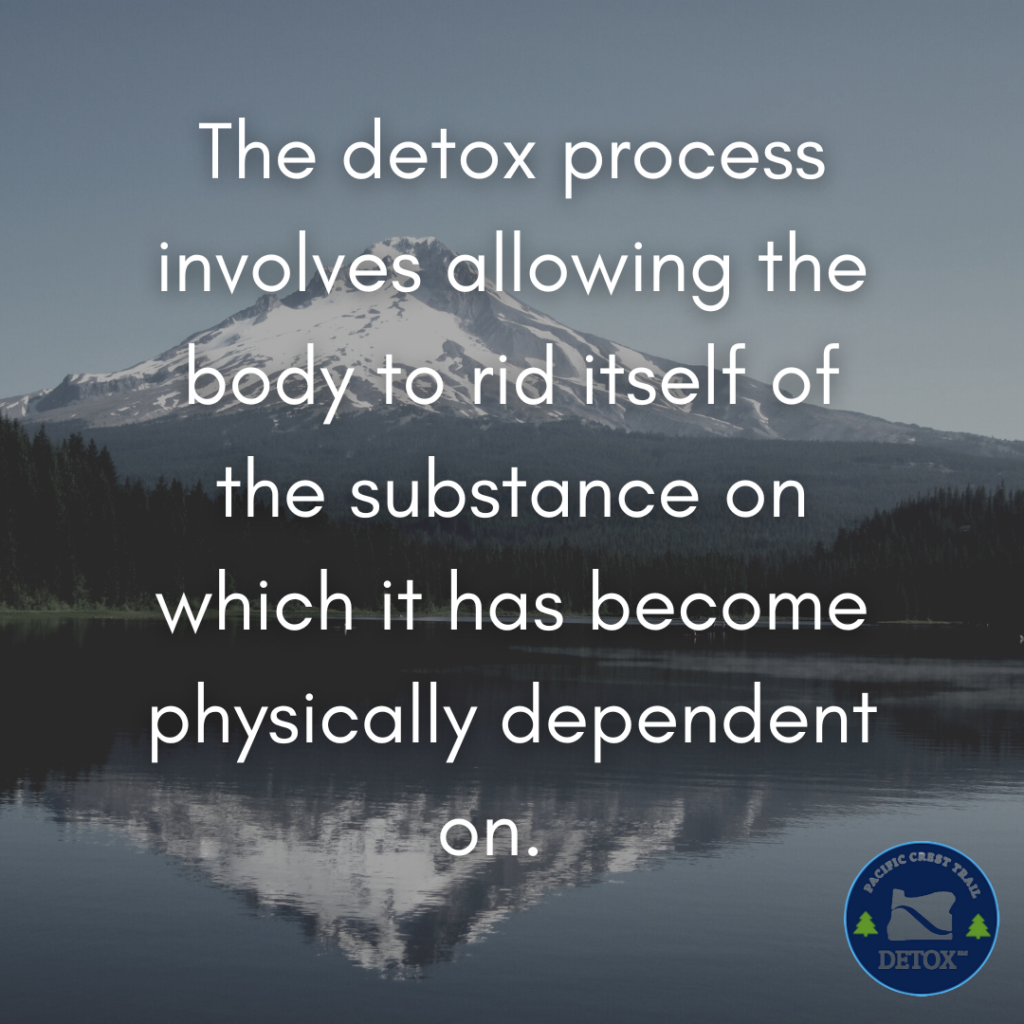Detox, short for detoxification, is the process of allowing the body to rid itself of a substance on which it has become physically dependent. It is a crucial first step in the addiction recovery process, as it allows an individual to begin addressing the physical and psychological effects of their substance use. While detox can be a difficult and uncomfortable process, it is an important step in achieving lasting recovery and a sober lifestyle. In this blog, we will explore what to expect during detox, including the different types of detox, the symptoms that may be experienced, and the process of detox itself. We will also discuss options for continuing treatment after detox.
There are several types of detox, each specific to a particular substance. Some common types of detox include:

Alcohol detox: Alcohol detox is the process of allowing the body to rid itself of alcohol and addressing the physical and psychological effects of alcohol use. Symptoms of alcohol withdrawal can include tremors, anxiety, insomnia, and seizures, and can be potentially life-threatening. It is important to undergo alcohol detox under medical supervision to ensure the safety of the individual.
Opioid detox: Opioid detox is the process of allowing the body to rid itself of opioids and addressing the physical and psychological effects of opioid use. Opioid withdrawal symptoms can include muscle aches, anxiety, insomnia, and diarrhea. Medications may be used to manage these symptoms and make the detox process more comfortable.
Benzodiazepine detox: Benzodiazepines, also known as “benzos,” are a class of drugs commonly used to treat anxiety and insomnia. Detoxing from benzos can be challenging, as withdrawal symptoms can include seizures and delirium. It is important to undergo benzodiazepine detox under medical supervision to ensure the safety of the individual.
Other types of detox: There are also detox programs for other substances, such as stimulants (e.g. cocaine, amphetamines) and marijuana. The specific symptoms and process of detox will depend on the substance being detoxed from.
During detox, an individual may experience a range of withdrawal symptoms as their body adjusts to functioning without the substance on which it has become physically dependent. These symptoms can vary in severity and duration depending on the substance being detoxed from and the duration of use.

Some common withdrawal symptoms that may be experienced during detox include:
- Tremors
- Insomnia
- Irritability
- Nausea and vomiting
- Diarrhea
- Flu-like symptoms
It is important to note that some withdrawal symptoms can be severe and potentially life-threatening, particularly for certain substances such as alcohol and benzodiazepines. It is important to undergo detox under medical supervision in order to ensure the safety of the individual and manage any potentially severe symptoms.
In addition to physical symptoms, an individual may also experience emotional and psychological symptoms during detox. These can include anxiety, depression, and cravings for the substance. It is important to have a supportive environment and therapeutic interventions to address these emotional and psychological symptoms during detox.
The detox process involves allowing the body to rid itself of the substance on which it has become physically dependent and addressing the physical and psychological symptoms that result. The specific process of detox will depend on the substance being detoxed from and the individual’s specific needs.

Here are some general steps that may be involved in the detox process:
Evaluation: The individual will undergo a physical and psychological evaluation to determine the best course of treatment. This may involve blood and urine tests to determine the presence and levels of the substance in the body, as well as an assessment of the individual’s medical history and current mental and physical health.
Stabilization: The individual’s withdrawal symptoms will be managed and stabilized, often with the use of medications. The goal of this step is to make the detox process as comfortable as possible.
Detox: The body will begin to rid itself of the substance, and the individual will continue to receive medical supervision and support to manage any symptoms that may arise.
Aftercare planning: The individual will work with their treatment team to develop a plan for continuing treatment after detox. This may involve inpatient rehab, outpatient treatment, or participation in support groups such as Alcoholics Anonymous or Narcotics Anonymous.
The length of the detox process can vary but typically lasts a few days to a week. It is important to have a supportive environment and access to therapeutic interventions during detox to address any emotional and psychological symptoms that may arise.

After completing detox, it is important to continue treatment for addiction in order to achieve lasting recovery. There are several options for continuing treatment after detox, including:
Inpatient rehab: Inpatient rehab involves staying at a residential treatment facility where the individual will receive around-the-clock care and support. Inpatient rehab can be a good option for individuals who need a structured environment and support to focus on their recovery.
Outpatient treatment: Outpatient treatment involves participating in therapy and support groups on a part-time basis while living at home or in a sober living facility. This can be a good option for individuals who have completed inpatient treatment or who have a strong support system in place.
Support groups: Participation in support groups such as Alcoholics Anonymous or Narcotics Anonymous can be a helpful addition to treatment. These groups provide a sense of community and accountability and can be a valuable source of support during the recovery process.
Continuing treatment after detox is an important step in achieving lasting recovery and a sober lifestyle.
In conclusion, detox is a crucial first step in the recovery process, allowing the body to rid itself of a substance on which it has become physically dependent. At Pacific Crest Detox, we understand that this can be a difficult and uncomfortable process, which is why we are here to provide a safe and supportive environment for our clients. Our professional and compassionate team is dedicated to helping you overcome addiction and achieve lasting recovery. We believe that with the right support and treatment, it is possible to overcome addiction and achieve a sober lifestyle. If you or a loved one is struggling with addiction, seeking professional help for detox and continuing treatment can be a life-changing decision. At Pacific Crest Detox, we care about all of our clients and are here to support you every step of the way.
